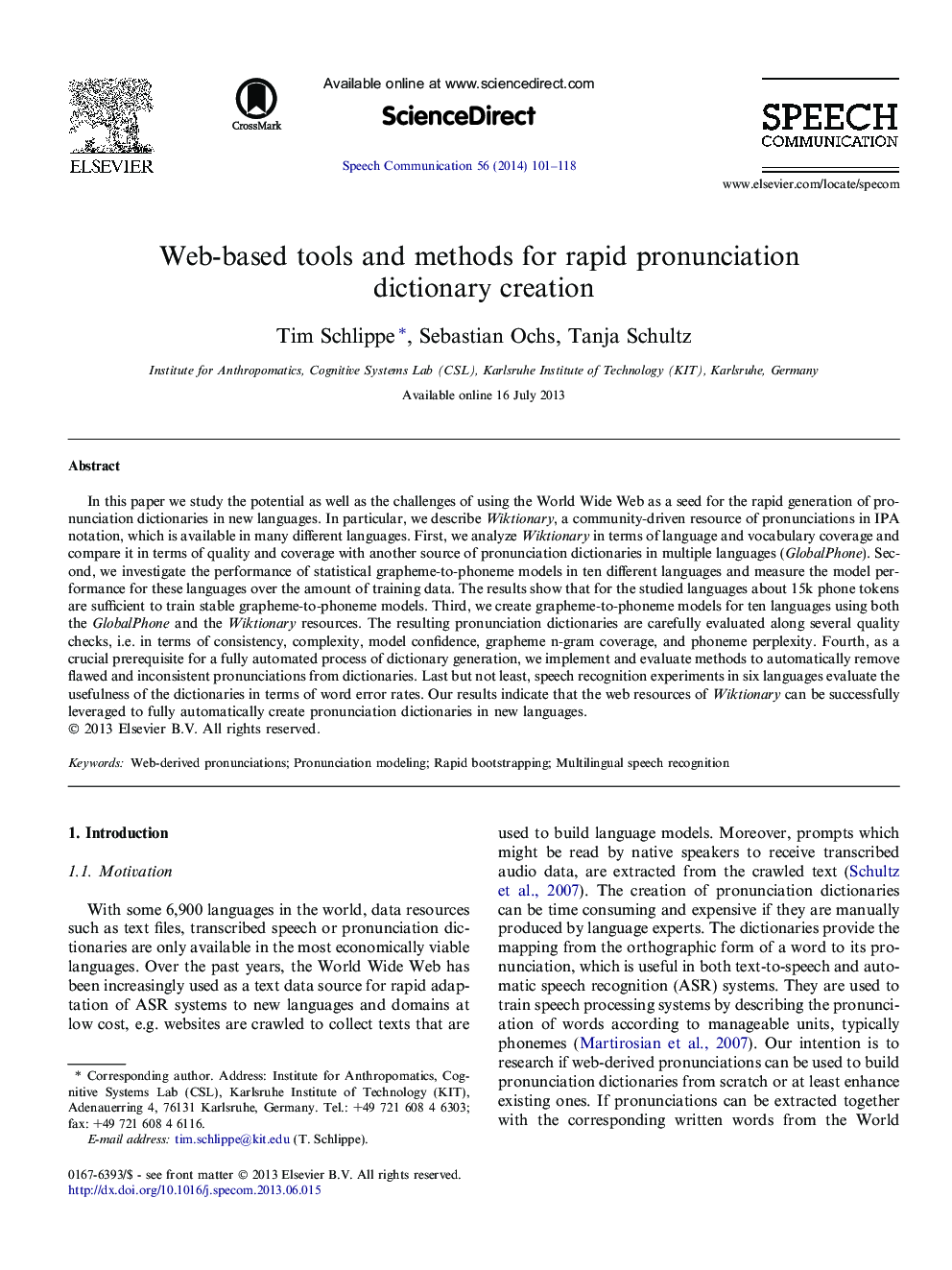| Article ID | Journal | Published Year | Pages | File Type |
|---|---|---|---|---|
| 567026 | Speech Communication | 2014 | 18 Pages |
•We analyze web data for the rapid generation of pronunciation dictionaries for ASR.•We investigate the quality of g2p models trained on web data.•We evaluate methods to automatically remove flawed and inconsistent pronunciations.•Reasonable performance degradations given cost and time reductions.•Methods are applicable to under-resourced languages.
In this paper we study the potential as well as the challenges of using the World Wide Web as a seed for the rapid generation of pronunciation dictionaries in new languages. In particular, we describe Wiktionary, a community-driven resource of pronunciations in IPA notation, which is available in many different languages. First, we analyze Wiktionary in terms of language and vocabulary coverage and compare it in terms of quality and coverage with another source of pronunciation dictionaries in multiple languages (GlobalPhone). Second, we investigate the performance of statistical grapheme-to-phoneme models in ten different languages and measure the model performance for these languages over the amount of training data. The results show that for the studied languages about 15k phone tokens are sufficient to train stable grapheme-to-phoneme models. Third, we create grapheme-to-phoneme models for ten languages using both the GlobalPhone and the Wiktionary resources. The resulting pronunciation dictionaries are carefully evaluated along several quality checks, i.e. in terms of consistency, complexity, model confidence, grapheme n-gram coverage, and phoneme perplexity. Fourth, as a crucial prerequisite for a fully automated process of dictionary generation, we implement and evaluate methods to automatically remove flawed and inconsistent pronunciations from dictionaries. Last but not least, speech recognition experiments in six languages evaluate the usefulness of the dictionaries in terms of word error rates. Our results indicate that the web resources of Wiktionary can be successfully leveraged to fully automatically create pronunciation dictionaries in new languages.
